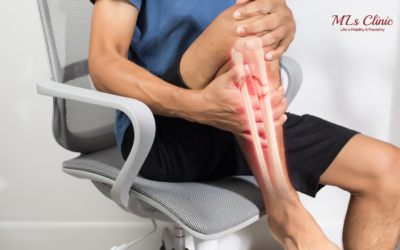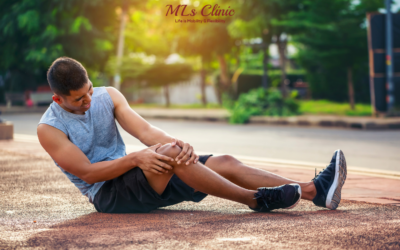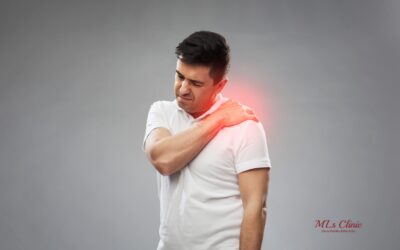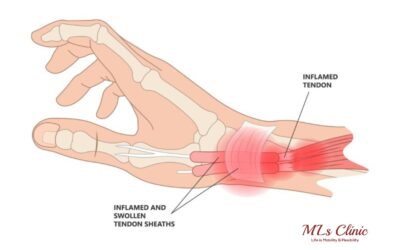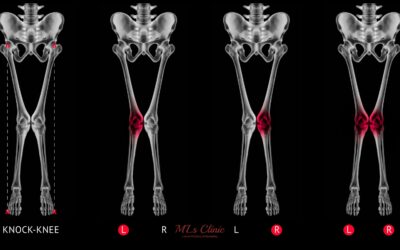Why Your Hip Pain In Cold? Reasons You Need To Know
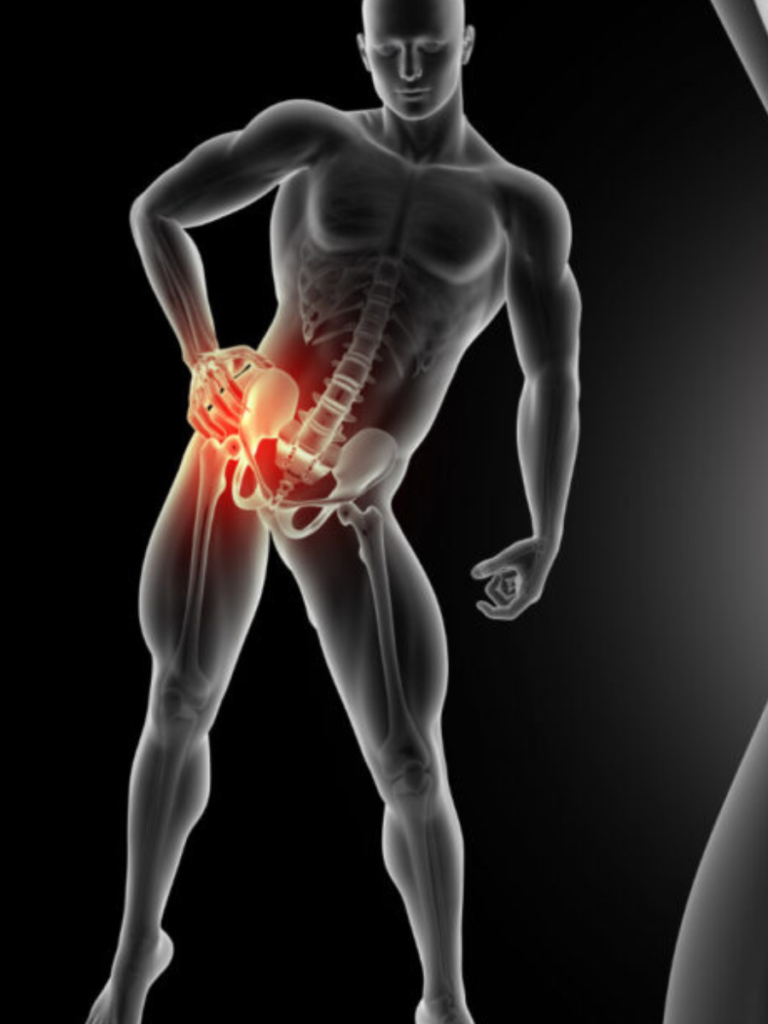
Hip Pain in Cold Weather
Have you ever felt that your joints get stiffer and more painful as it gets colder? If so, you’re not alone. 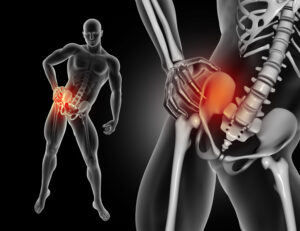
It’s common to experience joint pain when it’s cold, and there are many reasons for this. To help reduce cold-related joint pain, try to stay warm, dress warmly when going outside, and stay active.
Weather changes can definitely affect people with joint issues like arthritis. In fact, a study found that 67.2% of people with osteoarthritis believed weather influenced their joint pain.
What is the link between cold weather and joint pain?
You might have heard older people say they can predict bad weather because they “feel it in their joints.” This is because there is a link between weather and joint pain. In a study of older people with osteoarthritis in six European countries, 67% said the weather affected their pain. Those who were sensitive to weather reported more pain in cold weather.
Why does hip pain in cold weather happen?
A study on 92 patients with rheumatoid disorders found that weather conditions like barometric pressure, humidity, and temperature can worsen joint pain. These factors affect how injuries heal and recover.
Where a person lives can also influence how much pain they feel in cold weather. An earlier study found that people from mild climates experienced more weather-related pain than those from colder areas.
Here are some reasons cold weather affects people with hip injuries:
- For those with worn-out cartilage, nerves in the hip joints are more exposed and sensitive to pressure changes.
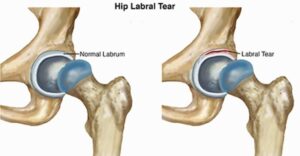
- Barometric pressure changes can cause scar tissues to contract and expand. This contraction can make movement painful.
- Lower temperatures thicken the fluids in joints, making them stiffer.
- The body’s response to cold is to preserve core temperature, reducing blood flow to the arms and legs. This makes extremities more sensitive to cold.
- People tend to stay indoors and exercise less during winter. This lack of activity makes muscles and tendons stiffer and less elastic, worsening hip injuries.
- Dr. Preetesh Choudhary, Best Hip Replacement Surgeon says, “Also, the patients who have undergone Total Hip Replacement Surgery might experience stiffness & pain when the weather is cold. This Discomfort is felt for 2 to 3 years after the surgery”.
More research is needed on the link between weather and Joint Pain. However, for many with hip injuries, pain flare-ups during winter are a real experience.
What People With Joint Injuries May Experience in Winter
Even after a hip joint injury heals, hip pain and discomfort can persist due to scarring and permanent changes in the hip, such as cartilage removal or the addition of metal or plastic implants known as Hip Replacement Surgery. People with hip injuries might experience the following:
- Scars feeling tight and pulling on the surrounding skin and muscles.
- Difficulty walking or moving the affected hip due to contracting scars and muscles.
- Pain at the implant site for those who have had hip replacement surgery.
- Pain levels ranging from slight discomfort to sharp pain that disrupts sleep.
People with hip injuries need to be extra careful in winter, as the affected areas are more prone to damage. Stiff muscles are more likely to tear or get injured than warmed-up muscles. Here are some tips on how to avoid or reduce hip pain in cold weather.
How to Prevent Hip Pain in Cold Weather
- Exercise Regularly Our top tip is to stay active during winter. Even if you don’t feel like going to the gym, a simple 20-minute indoor walk can be helpful. You can use a treadmill, walk around your home, or go to an indoor facility. Low-impact aerobic exercises, like swimming in a heated indoor pool, are also good since they provide resistance without straining your hip joint. Additionally, exercises that strengthen your hip muscles can offer long-term relief. We can suggest specific exercises for you.
- Stay Warm To ease stiff joints in the morning, which is common in winter, the Arthritis Foundation and the American College of Rheumatology recommend heat therapy. Applying local heat, like using a hot water bottle or compress, can help. However, if your hip pain is from a recent injury or flare-up, a cold compress might be more effective than heat.
- Drink Plenty of Water Staying hydrated is important because if you’re dehydrated, your body will take
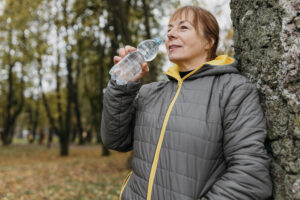 water from places like your joint cartilage, making your hip joints feel tighter and stiffer. In winter, it’s easy to become dehydrated since we tend to feel less thirsty in the cold.
water from places like your joint cartilage, making your hip joints feel tighter and stiffer. In winter, it’s easy to become dehydrated since we tend to feel less thirsty in the cold. - Eat a Balanced Diet Eating a balanced diet is essential for your overall health. If you have arthritis, eating more anti-inflammatory foods can help reduce pain. Your orthopedic doctor might also suggest some supplements.
- Avoid Straining Your Joints Don’t strain your joints unnecessarily. Ask someone else to lift heavy objects to avoid putting extra pressure on your hips.
Best Vitamins and Supplements for Joint Pain
Some vitamins and supplements might help with joint pain. Research suggests the following may be beneficial:
- Glucosamine chondroitin
- S-adenosyl-methionine (SAM-e)
- Methylsulfonylmethane (MSM)
- Omega-3 fatty acids
- Ginger
- Curcumin (found in turmeric)
- Capsaicin (found in chili peppers)
- Boswellia serrata extract
- Avocado-soybean unsaponifiables
- Collagen
- Vitamin C
- Vitamin D
However, the National Center for Complementary and Integrative Health notes that research on many supplements for arthritis is limited and results can be mixed.
